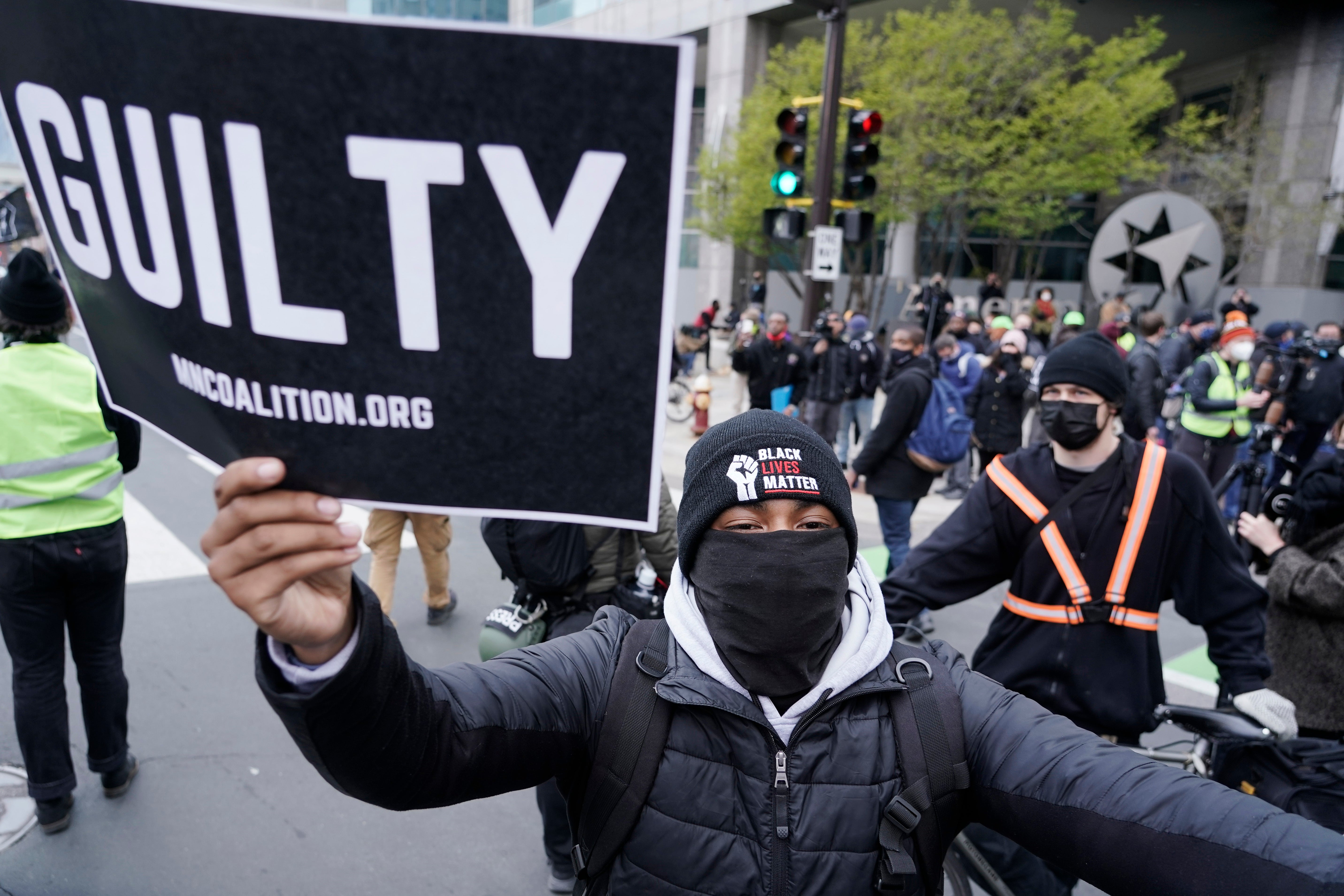The Independent's journalism is supported by our readers. When you purchase through links on our site, we may earn commission.
I’ve studied US police for decades. This is what I think will change now Chauvin has been convicted of murder
There was no serious test or erosion of the blue wall of silence — and not enough of a focus on police unions, either. The original statement made by officers after Floyd’s murder has gone viral for a reason

Your support helps us to tell the story
From reproductive rights to climate change to Big Tech, The Independent is on the ground when the story is developing. Whether it's investigating the financials of Elon Musk's pro-Trump PAC or producing our latest documentary, 'The A Word', which shines a light on the American women fighting for reproductive rights, we know how important it is to parse out the facts from the messaging.
At such a critical moment in US history, we need reporters on the ground. Your donation allows us to keep sending journalists to speak to both sides of the story.
The Independent is trusted by Americans across the entire political spectrum. And unlike many other quality news outlets, we choose not to lock Americans out of our reporting and analysis with paywalls. We believe quality journalism should be available to everyone, paid for by those who can afford it.
Your support makes all the difference.George Floyd’s death was one of the first occasions for many white people to get a dramatic sense of the fears of Black and brown people during their interactions with police. Its graphic qualities triggered an awakening of conscience that has given movements such as Black Lives Matter a national (even international) and broadly-based energy. Not since the civil rights movement has the call for social change been so widely and peremptorily motivated.
The very public unfolding court case made it clear that time-honored police legal and operational tactics can no longer be shielded from searching examination. The central exhibit was the bystander video, one of a growing number of such video documentations via smartphone of police violence. Such recordings are hardly new: A neighbor famously filmed Rodney King being beaten by four police officers in 1991. However, their power in the age of the internet has clearly increased. The officers who beat King were acquitted, leading to riots throughout Los Angeles; in a sign of what one hopes is progress, Chauvin was found guilty of three counts of murder after the bystander footage of him kneeling on Floyd’s neck went viral.
However, as we saw in the first King trial, even a visual record must be interpreted. Chauvin’s defense pushed hard to reinterpret and re-contextualize what jurors saw on the screen. Such tactics have been successful before, providing the leeway needed to exempt police from full accountability in most similar cases.
On this occasion, it was not enough. The plaintive cry “I can’t breathe” has been etched into the national conscience. Chauvin, with his hand permanently in his pocket, never came across as a sympathetic human being; his understandable choice not to testify did not help to humanize him.
The prosecution was able to enlist the testimony of senior officers in Chauvin’s department (the chief was exemplary in his articulation of standards) and excellent medical expertise (Dr Martin Tobin, a pulmonologist and expert in respiratory medicine, was particularly impressive.) Along with a strong and relentlessly persuasive prosecutorial team, the high standard required by criminal charges was met. A diverse jury certainly did not hurt, though the boarded-up shopfronts in the Minneapolis courthouse environs were their own testimony as to how what may have seemed clear to most of us could too easily fail. Justice can never be presumed.
Have we learned anything? That is still to be seen. The value of video-audio records has probably been reinforced, though it is rare to have records as powerful and unambiguous as they were in this case. Qualified immunity for police officers remains, and the burden of policing failure (and even impunity) will likely continue to fall on communal resources rather than on police.
There was no serious test or erosion of the blue wall of silence: Although it is uncommon for the brass to testify, the strongest wall is that which exists among operational officers, and none of Chauvin’s peers testified. Absent major cultural change, that wall is likely to remain. Lest we forget, the original police statement in the immediate aftermath of Floyd’s death spoke simply of a man dying from a “medical incident” after officers called an ambulance during an arrest. It was only when bystander video began circulating that that narrative began to change.
The “defund” and “abolish” campaigns are non-starters, though some departments and jurisdictions may use the opportunity to either re-allocate some of their welfare-related and summonsing resources to other agencies or make more conscious efforts to diversify their competencies. Maybe police training will focus a little more on the development of de-escalation techniques rather than the traditionally ascending continuum of force, though the understandable emphasis on officer safety will continue to incline officers toward “preemptive” tactics.
The spotlight on police unions has not been as strong as it ought to have been — perhaps in the latter days of the current case, the union figured that discretion was the better part of valor. However, in many other cases, the power of police unions to protect their own has been determinative.
Most critical of all, although the case has highlighted our common humanity, we still live with a deep and often under-acknowledged societal racism that police — civilians in uniform — absorb from our troubled culture. Without losing our focus on police, we are all called to reflect on centuries of prejudice.
John Kleinig is an emeritus professor of police ethics at the John Jay College of Criminal Justice in New York
Join our commenting forum
Join thought-provoking conversations, follow other Independent readers and see their replies
Comments